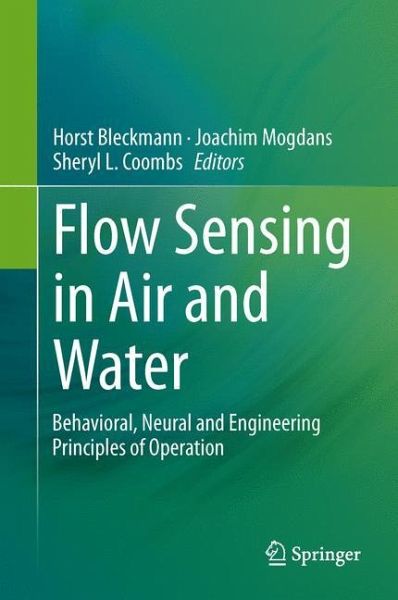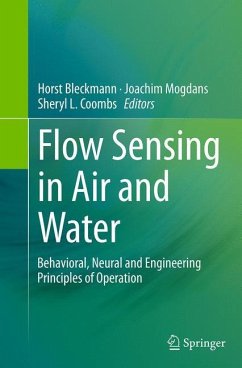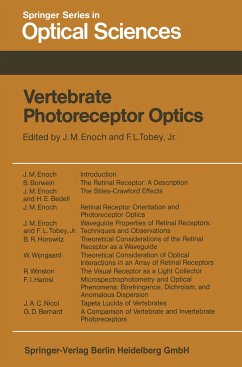
Flow Sensing in Air and Water
Behavioral, Neural and Engineering Principles of Operation
Herausgegeben: Bleckmann, Horst; Mogdans, Joachim; Coombs, Sheryl L.

PAYBACK Punkte
76 °P sammeln!
In this book, leading scientists in the fields of sensory biology, neuroscience, physics and engineering explore the basic operational principles and behavioral uses of flow sensing in animals and how they might be applied to engineering applications such as autonomous control of underwater or aerial vehicles.Although humans possess no flow-sensing abilities, countless aquatic (e.g. fish, cephalopods and seals), terrestrial (e.g. crickets and spiders) and aerial (e.g. bats) animals have flow sensing abilities that underlie remarkable behavioral feats. These include the ability to follow silent...
In this book, leading scientists in the fields of sensory biology, neuroscience, physics and engineering explore the basic operational principles and behavioral uses of flow sensing in animals and how they might be applied to engineering applications such as autonomous control of underwater or aerial vehicles.
Although humans possess no flow-sensing abilities, countless aquatic (e.g. fish, cephalopods and seals), terrestrial (e.g. crickets and spiders) and aerial (e.g. bats) animals have flow sensing abilities that underlie remarkable behavioral feats. These include the ability to follow silent hydrodynamic trails long after the trailblazer has left the scene, to form hydrodynamic images of their environment in total darkness, and to swim or fly efficiently and effortlessly in the face of destabilizing currents and winds.
Although humans possess no flow-sensing abilities, countless aquatic (e.g. fish, cephalopods and seals), terrestrial (e.g. crickets and spiders) and aerial (e.g. bats) animals have flow sensing abilities that underlie remarkable behavioral feats. These include the ability to follow silent hydrodynamic trails long after the trailblazer has left the scene, to form hydrodynamic images of their environment in total darkness, and to swim or fly efficiently and effortlessly in the face of destabilizing currents and winds.














